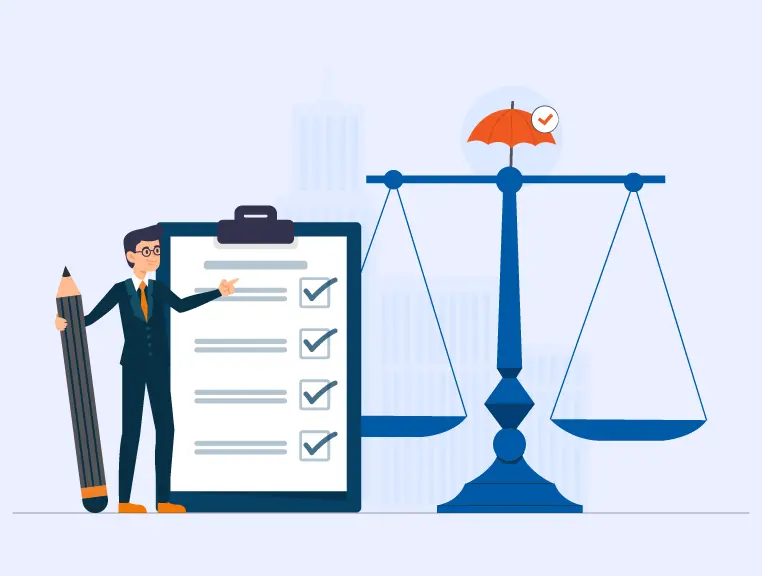Commercial Liability insurance policies are an important protection for corporate policyholders. They are known for providing defense and indemnity coverage against claims for bodily injury and property damage. This policy enlightens on the major duties of an Insured under Commercial Liability Insurance.
Listed below are the duties of an insured under Commercial Liability Insurance in the event of an occurrence, offense, claim, or suit.
- The insurance company should be notified immediately about the occurrence or an offense that may result in a claim.
The notice should include the following information:
- Details about the occurrence or offense stating how and when it took place.
- In case of injured people or witnesses, must include their names and addresses.
- In case of an injury, its nature and location should be included. Damage arising out of the “occurrence” or offense must be properly mentioned.
- In case of a claim or suit against the insured, it is his duty to:
- Record the details of the claim or suit and the date when received it.
- Notify the insurance company as soon as possible.
- Send a written notice of the claim or “suit” immediately to the insurance company.
- Retain unaltered and unrepaired any machinery, plant or appliances connected with the event.
Some other major duties of the insured under commercial liability insurance are:
- An insured must send the insurance company, any copies of any demands, notices, summonses, or legal papers received.
- An insured must authorize the insurance company to obtain records and other information.
- Cooperate in the investigation or settlement of the claim or defense against the suit.
- An insured must upon the insurance company’s request, in the enforcement of any right against any person or organization which may be liable to the insured. Such a person or organization is liable because of injury or damage to which this insurance may also apply.
- An insured must not voluntarily make a payment.
- Do not assume any obligation.
- Do not incur any expense, other than for first aid, without the consent of the insurance company.
Case
FastMail Inc, a mail-order company rented a warehouse under a standard lease. While signing the lease papers, the company agreed to various clauses. One of the clauses stated that the tenant (FastMail Inc) is responsible for any damage or injury related to the property. Wouldn’t hold the landlord accountable for the same.
Read More: What is a Commercial General Liability Insurance?
One day a salesman visited the company showing the display of his samples. During his visit to the company, a light fixture fell from the ceiling and landed on the salesman’s samples. All his samples broke due to the impact.
The salesman demanded that he should be paid for the broken samples by the company as all his samples were broken when he was displaying them to the company’s workers.
According to the lease agreement, the damage to the property or injury to anyone was the sole responsibility of FastMail inc.
When FastMail Inc rented the warehouse, it bought a Commercial Liability insurance policy from a qualified insurance company. Upon the demand from the salesman for his broken samples, FastMail Inc immediately informed the insurance company about the same.
The timely notification helped the insurance company to engage in providing a complete account of the situation. The insurance company also asked for some documents like the date and day of the event. The company provided the complete information. They also maintained the state in which the light fixture fell from the ceiling. This helped in the further inspection by the Insurance company.
The commercial liability insurance company protected the company against the lawsuit by the salesman and also paid for his damaged samples. In this case, resolved the salesman’s claim without costly litigation.



